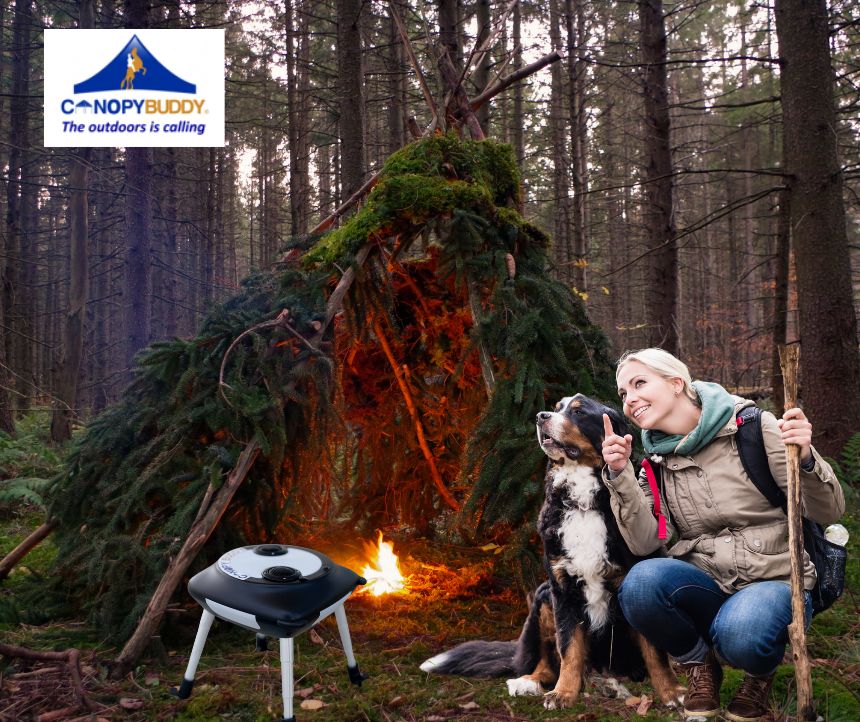
Edward Singh
Wilderness Survival – Important Survival Tips to Remember
Hope for the best and be prepared for the worst” is a quote by Maya Angelou, and that should be the motto of every outdoor enthusiast who loves to spend time in the wilderness. Wilderness Survival is not at all easy, and if you are not prepared for the world then it can be a nightmare for you. When you are in the wilderness, there are a lot of things that can go wrong – face off with extreme weather conditions, stumble upon a wild animal, get carried down a river, or anything else. There are even chances that you may forget the way back home and get stranded in the middle of the dense woods with no cell phone service. Below are some wilderness survival tips/skills that can help save your life:
List Down Your Resources: When you get lost in the wild, the first thing to do is to stay calm and start calculating the resources you have so that you can make an exit plan accordingly. Here, we can expect that at the time of packing, you might have carried some useful camping accessories such as camping lights, fire starters, water bottles, a compass, etc.
Find a Water Source: According to studies, humans can survive for only 3 days without water; therefore, you should find a water resource to keep yourself hydrated. Also, remember to filter/boil the water before consuming it because drinking impure forms of water in the wilderness can lead to unwanted health consequences. Below are ways you can find clean water or decontaminate it yourself.
- Rivers: If you have a map, then try to find the closest river or any other stream of water from where you can get water. On your way to finding a river, keep checking for small water pools as well. Don’t forget to decontaminate before drinking!
- Rain: If you are stuck in the rain forest, then be ready to collect water whenever it rains. You can use open containers, vessels, or any other means to collect the water to keep yourself hydrated. One of the best Wilderness Survival tips is to collect rainwater with a piece of cloth.
- Snow: Put into a water bottle and melt it with the help of sunlight. Don’t try to eat snow as your body will waste more energy digesting it frozen instead of allowing it to first melt fully.
- Ground: You can dig the ground, and that’s one of the options you have to find a water source. But don’t just start digging anywhere, instead look for moisture-loving plants, such as cattails or willows. When you dig a hole, you will see wetter soil which will eventually seep water and fill the hole. Then, you can filter the groundwater using a cloth and boil it for safe consumption.
- Seek a Shelter or Create a Shelter: After calculating the available resources you and finding the water source for yourself, it is time to find a shelter where you can stay safe in the wild. It is one of the most important wilderness survival tips. If you are not able to find a shelter, then you must create one using wood, leaves, and grass. A shelter will protect you from hypothermia, heat exhaustion, and dehydration depending on the prevailing weather conditions.
- Creating Fire: Now, as you have found shelter and water resources for yourself, it’s time to build a fire. There are tons of benefits of fire in the wilderness. It not only protects you from cold and wild animals but offers peace of mind. You can dry leaves, pine needles, or small pieces of wood to start a fire. However, if you are carrying a fire starter then things will be quite easy for you. You can use fire to cook a meal, boil water, stay warm, or fight off wild animals.
- Try to Establish Contact with Nearby Search and Rescue Teams: Once you have everything in place (Water, Shelter, and Fire), don’t just sit back and relax. Keep trying different methods to establish communication/connection with the nearby search and rescue teams. You can use visual and auditory signals like mirrors, whistles, and smoke to attract the attention of the search teams and notify them of your location.
Wilderness Survival – Wilderness Survival Kit
Wilderness Survival is a tough job, but with proper planning and execution, you can come out of any problems. However, for easy survival, you will need some tools. Below are some of the most important tools that you should carry with you as a part of a wilderness survival kit.
- Map and GPS
- Fire Starter
- Waterproof Case
- Hydration Bag or Water Bottle
- Multi-Tool Knife
- Shelter or Tarp
- Camping Lights & Lanterns
- First-Aid Kit
To conclude, if you are lost in the wild, then as a part of wilderness survival develop a strategy to commence your pursuit of the three crucial elements for survival: water, shelter, and warmth. Although the priority of these needs may vary based on your circumstances, it is advisable to prioritize finding a water source, then securing a shelter, and finally creating a fire for warmth and to boil water.
Buy Camping Lights & Lanterns for Wilderness Survival
Wilderness Survival is not an easy task, especially when you are lost. But the situation even worsens when the sun sets down and you are not carrying your wilderness survival seat. Wilderness survival kit ensures your safety even in the dark and makes you feel comfortable. Among all, a fire starter, tent, and a durable camping light are the must-have camping accessories.
If you are looking for amazing, multipurpose, durable, and long-lasting camping lights & lanterns, then visit CanopyBuddy.com. The Vault and The Quad-v are two amazing LED camping lights that are long-lasting, durable, and convenient!
Summary
Wilderness Survival –Survival Tips to Remember. Here are Wilderness Survival tips by experts. Buy Wilderness Survival kit and camping lights & lanterns online.
